Porosity is what determines how quickly your hair loses or retains moisture. Hair with low porosity has a cuticle that lies nearly flat, which makes it resilient to chemicals and topical products. High porosity hair is damaged and dry. It absorbs color and products very quickly, but since the cuticles aren't tight and flat, it also loses color, products and moisture faster than low porosity hair. Porous hair can be temporarily fixed by treatments that coat the shaft and fill in the holes.
Protein
Hair is made up of protein, so coating your shafts with a homemade protein treatment is an easy, cheap way to strengthen your hair. Make sure you pair any protein treatments with moisturizing ingredients to keep hair from feeling crunchy or stiff.
Eggs are one of the best and least inexpensive sources of protein for hair. Whip 2 eggs with 3 tbsp. coconut milk, 2 tbsp. olive oil, 2 tbsp. honey and a squirt of conditioner, vanilla extract, or essential oil for scent. Apply to wet hair, adding extra mixture to the drier ends. Leave on for 30-plus minutes and shampoo out. The coconut milk and olive oil are moisturizing, and the honey acts as a humectant--drawing moisture to your hair.
Henna
Henna is an all-natural coloring treatment that coats the hair shaft, blocking holes and lessening hair porosity. It will turn blond hair golden-red, and give darker hair a lovely reddish glow. Neutral henna won't color your hair, but you'll still get the same strengthening benefits.
Make sure your henna is absolutely chemical-free before purchasing. Mehandi.com sells wonderful, pure henna. Mix your henna with water, milk, yogurt, or lemon juice until it forms a thick, pudding-like paste. Let it sit for about 12 hours in a warm place, so that the dye can be activated. Then, smear the paste all over your hair (make sure you wear gloves; the colored henna will stain your hands), wrap your head in plastic wrap, top it off with a thick towel, and lounge around your house for 2+ hours. The longer you leave it, the stronger your color will be.
Rinse the henna off in the shower, using an extra amount of cheap conditioner to get it all out of your hair. Your hair will tangle less, look smoother, feel thicker, and be less porous. You can repeat this every 6-8 weeks and your hair will continue to improve.
Acidic Rinses
After shampooing and conditioning, a slightly acidic rinse will temporarily seal the cuticle of your hair, which lessens the porosity. Mix half a cup of apple cider or white vinegar into 1 qt. of lukewarm water. Pour this over your hair several times and don't rinse out. The vinegar smell will fade as your hair dries, and hair will be shiny and smooth.
You can also add the juice of 1 to 2 lemons to 1 qt. of lukewarm water and use in the same way. If the lemon rinse is repeated frequently enough, it will lighten your hair and encourage blond highlights. Either way, rinses are a quick fix for high-porosity hair.
Related Articles
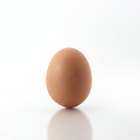
Uses for Mayonnaise, Egg & Vinegar in ...

How to Moisturize Dreads After Bleaching

How to Get Rid of Built Up Soap & ...
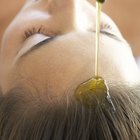
Homemade Treatments to Make Hair Thicker

How to Relax a Perm With Home Remedies

How to Make Black Hair Dye Fade Out

Dry Hair Treatment With Canola Oil

Recipe for a Coconut Oil & Olive Oil ...

How to Strip a Black Rinse for African ...
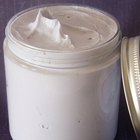
Avocado Butter Hair Treatment

How to Get a Healthy Spiral Perm

How to Remove Henna With Yogurt
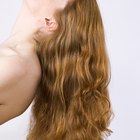
How to Make a Homemade Water-Based Hair ...
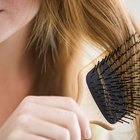
Lemon Juice Vs. Apple Cider Vinegar as ...

Hair Tips for Super Dry Hair

How Can I Get the Perm Smell Out of My ...
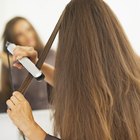
How to Fix Dry Hair Ends

How to Make Extensions Smooth & Silky ...
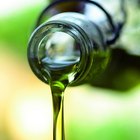
Homemade Moisturizing Hair Masks
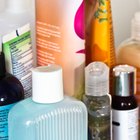
How to Condition Hair After Using a ...
References
Writer Bio
Autumn Jones has been working as a freelance writer since 2007 with work appearing on various websites. She majored in creative writing at Vassar College and continues to pursue her passion for the written word as much as possible.